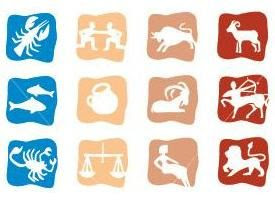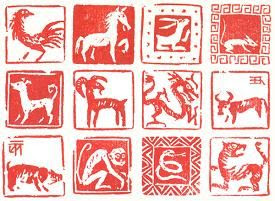
Fireworks are legal in Taiwan!
“So what,” I hear you say. “they’re just fireworks?” Well, this is true. They are just fireworks. However, look at the situation from my perspective.
In Australia, fireworks cannot be bought by the common citizen. We resign ourselves to waiting for New Years Eve, and then watching them on the television. A poor substitute to say the least, as a television can never capture the right atmosphere.
Why this ban? I’m not sure, perhaps one too many people blew their hands off, using them irresponsibly. Regardless of the reason, the fact remains that I had previously never played with fireworks, and had only once previously seen a live show.
Since I had only ever seen fireworks as distant, colorful explosions, I walked straight past the stall that sold them! I was stopped by the friend I was with and directed over to a stall with lots of small cardboard boxes and tubes. Cardboard! What the hell? I thought the covers would be waterproof at least. And yes, call me childish, but I was expecting the classic cylinder with a cone cap at one end. Some were even made of paper! To be fair on myself, there were a couple of cylinders with cone caps, and to my glee these all had words such as ‘Danger: Highly Explosive’ or similar on it, but were rather expensive, so I decided on quantity, not quality. This time anyway…
I spent a total of 1000NT. The stall keeper threw in a few smaller cheap fireworks for free, and we were on our way.
Anyway, now for the fun! My friend and I went to a nearby lakeside. We decided to use the smaller tubes first. They shot away, or hovered for a few seconds, in various colors, shapes and sizes, and I didn’t even lose a finger! They had they’re own type of charm, and were new to me, so I found them fun to ignite, but I must admit, they didn’t quite give me a feeling of ‘wasai’.
After that, we moved to the four meter high fountain of golden sparks, which was spectacular, but I had been around bonfires that were bigger and more ferocious.
I had saved the best till last. A thick slab made up of thirty two smaller cylinders. I lit it, and waited a few long seconds. Did it work? Did the fuse blow out? Then, there was an abrupt pop and sizzle, and I was treated to my own personal fireworks display. Thirty two projectiles rocketed into the air, one after the other, and exploded far above my head. Some were large explosions, some took on shapes, or patterns, others hung around like willow tree foliage. It was a great finale. I stood transfixed, utterly mesmerized.
I have noticed that Taiwanese people don’t often use fireworks for random fun, and instead generally use them for engagement parties, weddings, and other large celebrations.
I guess it’s true that if you see something too often, it takes the magic away.
So, yet one more reason for Australians, and other non-firework permitting countries, should visit Taiwan. It’s not the fact that you can see fireworks, but the fact that you can light them. No more being a passive observer, you can actively get involved.
Submitted to Wasai Taiwan by: Sean Wise
(Taipei, Taiwan--- Melbourne, Australia
=============================================================
related post:


Fireworks and Bravado
At Lantern Festival two weeks after the Chinese New Year many temples around the country put on spectacular displays of fireworks. At Luermen, just north of Tainan City tens of thousands of people gather for the display. It is well worth the hassle of walking through the crowds that throng the streets of the village, buying snacks at the market stalls and making your way towards the huge temple. On arrival at the temple forecourt I was ushered onwards, towards the temple itself and told that the bridge linking two of the buildings would be my best viewpoint – and besides, it would be very dangerous for me to stay where I was. I little reluctantly, because it looked, from the appearance of the small stage that had been set up that this was where the action would be, I agreed and allowed myself to be moved on.
I was on the bridge in good time to find a place to park my camera and tripod and to wait for the fireworks. In the centre of the forecourt, where I had first wanted to stand, the crowd moved aside as a huge stack, about four metres high, was wheeled into place on the stage. Then the ‘fun’ started. The stack turned out to be crammed with fireworks. Some shot their streams of colour into the air, but the general direction of the majority was much more sinister. Firecrackers shot every way, many straight into the crowd. OK, I had to admit to feeling grateful to those who had moved me on! Most of the men standing near were wearing plenty of protection including crash helmets and thick clothes. That was not the place to set up a tripod!
After the ‘excitement’ came a display, in the middle distance on the edge of the village, a beautiful display lasting about ten minutes held the crowd enraptured. As it ended I noticed that the stack which had been removed from the stage had been replaced by another, equally menacing tower. That too erupted and spewed its flames and explosions in every direction into the crowd. It was followed by a second intricately artistic display from another spot on the perimeter of the village. This time the wail of an ambulance siren accompanied the scene.
I looked towards a building in front of the temple and discovered where the towers had come from as I saw doors open and yet another being wheeled out of the long warehouse. The cycle was repeated about a dozen times. Each time the tower seemed more lethal. Several times ambulances were heard starting their journeys to hospitals in the city. And each time another distant display elicited “Ooos” and “Ahhs.” from the crowd. A lantern in the form of a small hot air balloon failed to gain altitude and dropped into the crowd where the flames were safely extinguished.
I began reflecting on fireworks in Britain. Many families like mine used to have bonfires in their gardens to remember, around November 5th, the exposure of a terrorist plot to blow up King James in 1605. But in recent years, following many accidents, public and insurance companies’ concern over the inevitable injuries and fires had changed the culture towards having ‘safe’, well managed public displays.
The disregard of safety at Luermen was somewhat scary. I wonder how those who had been injured would look back on their night of bravado when they had challenged the fire dragons – and lost. What does this say for the values Taiwanese people place on life and wellbeing?
Submitted to Wasai Taiwan by: John Crocker
(Tainan, Taiwan --- London, U.K.)























